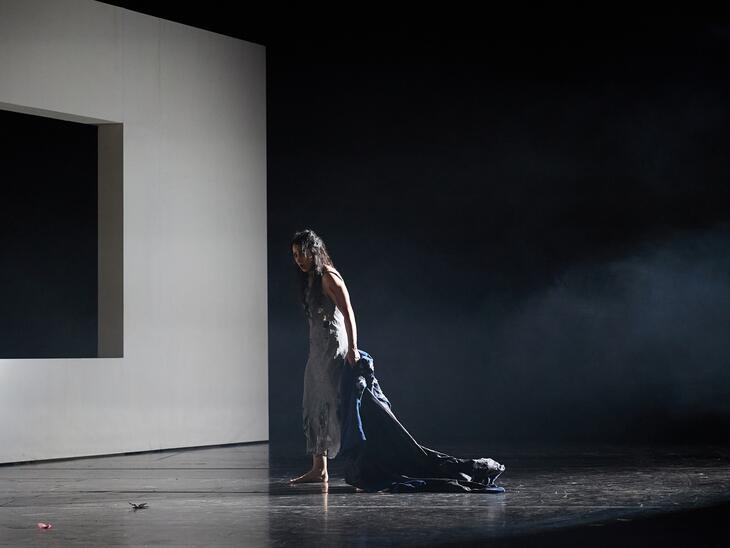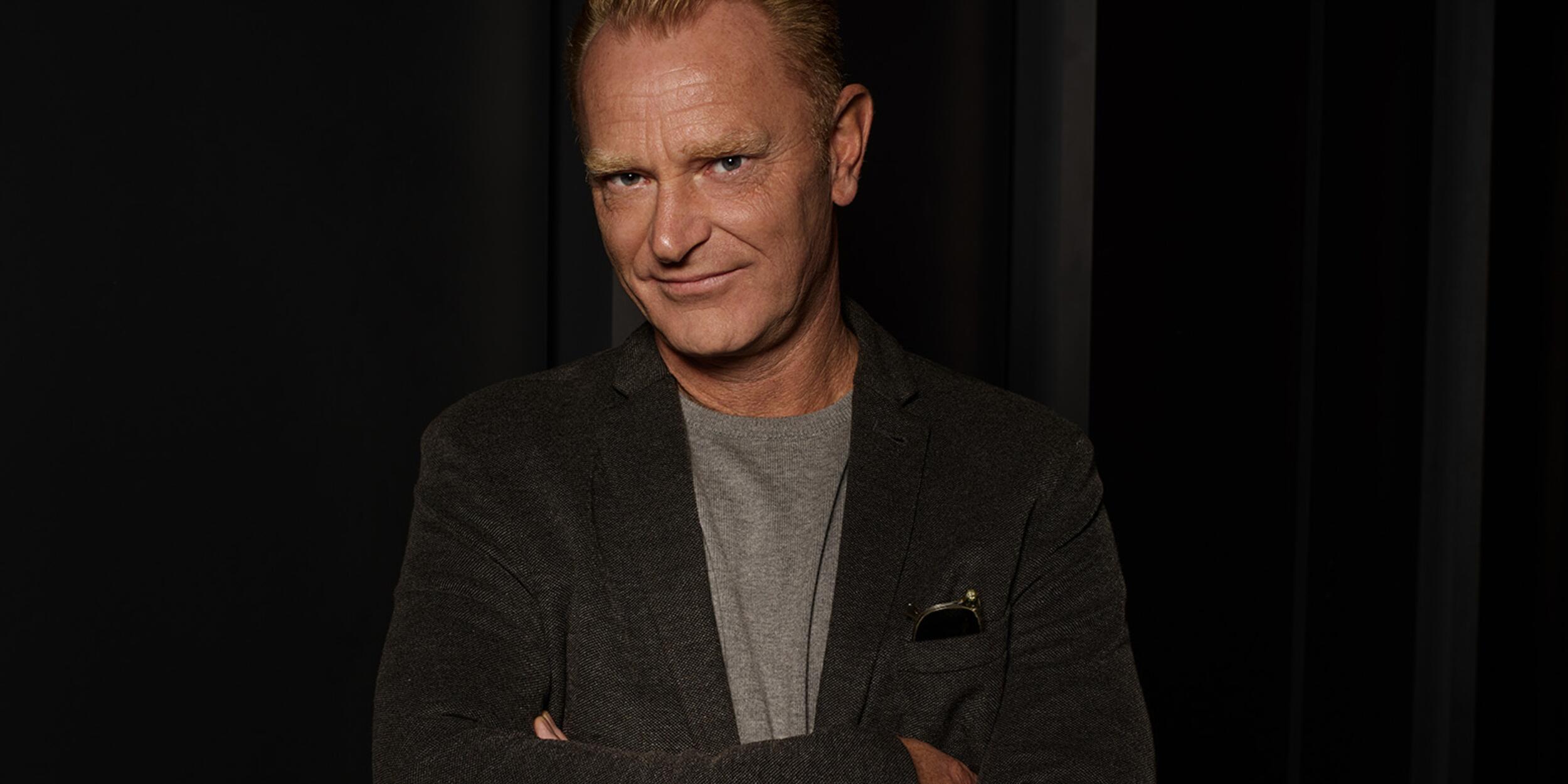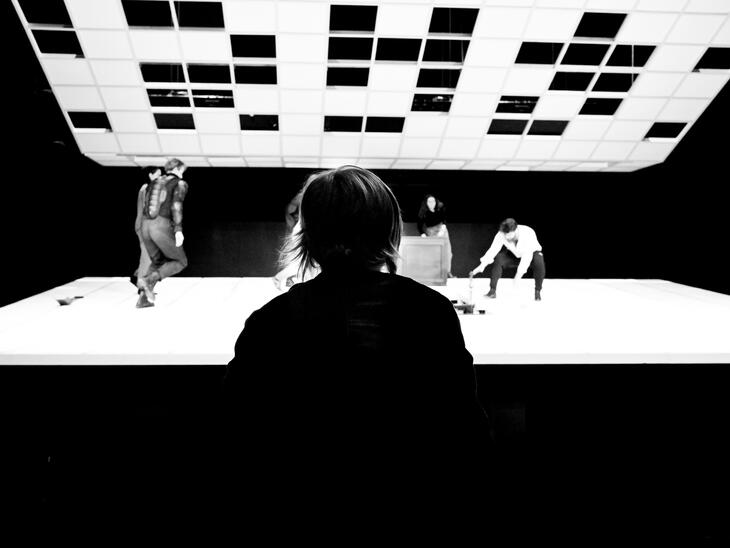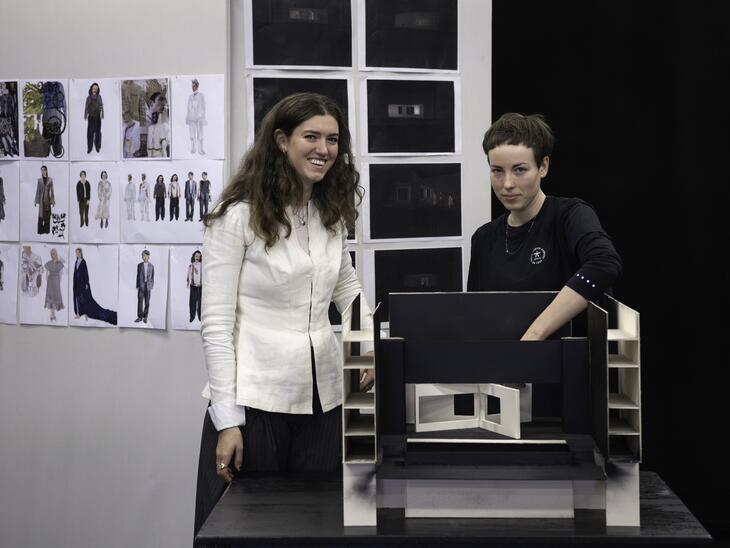After Così fan tutte last semester, the contrast could hardly be greater with Hans Werner Henze's Elegy for Young Lovers (première 1961). Why did you choose this opera, which, in the words of the composer, is about "questioning the figure of the artist, this concept of the heroic life" (Hans Werner Henze)?
Ideally, the Master's programme in Opera and Music Theatre touches on all stylistic periods at least once: roughly speaking, this means Baroque, Viennese Classicism, Romanticism and Modernism. In this case, Henze's Elegy is a clearly modern accent, as it will always be in the theatre every season. We develop the necessary "tools" for this by exploring atonality, complex rhythms, Sprechgesang and other unusual playing instructions.
Every budding artist has to come to terms with the figure of the artist as a glorified hero. The libretto "teaches" us here how much we can be misguided by our own self-stylisation. It can happen that access to one's own inner inspiration remains closed, sometimes in phases. Many people then resort to aids by adopting the inspiration/interpretation of others, other people who, in the worst case, they keep dependent on themselves so that they can use them whenever they need them. That's borderline... Our artist (the protagonist, the poet "Gregor Mittenhofer") will even walk over dead bodies if necessary. The end result is a seemingly "pure" work of art and nobody has any idea of the dark history of its creation.
Was the scepticism towards music of the 20th and 21st centuries noticeable among the students - especially at the beginning of the rehearsal phase? Does this scepticism even (still) exist? How do students deal with the challenge of approaching this very difficult and highly complex music, internalising it and making the roles their own through musical identification?
Unfortunately, this scepticism is still very much present. This scepticism is supported by the technical difficulties involved in learning the game. It is very tedious and involves a lot of work. But that's why we teachers are committed to providing the necessary positive motivation. Once this initial hurdle has been overcome, there is usually a great sense of satisfaction and appreciation for the work, provided it is a masterpiece like Henze's Elegy. It is therefore all the more important that our students have this experience at a very early stage in order to dispel any reservations they may have later on. "That's really great music!", I've heard a few times from students after some time... Oh really!...
Joking aside: I consider it one of our most important tasks to train future singer-performers who have access to modern, contemporary musical theatre. We want to keep our finger on the pulse of the times. I would like to intensify this in the future.
How much emotion do you demand from the students in the musical interpretation of a work that, after its premiere in Schwetzingen in 1961, was described by Werner Oehlmann as a "merciless, revealing critique of human individuality, a pessimistic tragedy that locks people in the prison of their delusions and exposes their idols, art and love, as mirages" (from: Das Orchester: Zeitschrift für Orchesterkultur und Rundfunk-Chorwesen 9/9, Sept, 1961, pp. 259ff.)?
Here, as there, we need the entire range of acting, musical and singing skills. There is no difference between Monteverdi, Mozart, Tchaikovsky or Henze. Whether Poppea coldly commissions murders and even lends a hand herself, or the artist Mittenhofer deliberately lets two young people freeze to death in the mountains in Henze's Elegy, even though he could save them: Both require the most perfidious criminal energy. This also needs to be "played", acted, sung intensely...
The orchestra features soloists throughout, there is a large selection of percussion instruments and the instrumentation is very specialised (including mandolin, celesta, vibraphone, bells, etc.). Some instruments are assigned to individual characters - what challenges do you face as a conductor in "holding together" this diverse music and giving the students stability within the complex structures?
I'm really looking forward to this orchestra, consisting of 22 soloists, six of them percussionists, guitar, saxophone, woodwind and brass players and the string quintet. There is even a singing saw, a real saw, bent and played with a double bass bow. The demands are extremely high for everyone. But I am very confident because we have a very high level of instrumental talent among the students at the Mozarteum University.
The opera will be performed in a slightly shortened version that you have worked out yourselves. What did you pay particular attention to in the cuts, what did you think should not be deleted under any circumstances and what characterises the new version?
Yes, we have cut something so as not to overtax ourselves or the audience. Of course, we left the crucial passages in. The guiding principle was that the libretto can still be told effortlessly. As a university is also primarily about pedagogy, the learning objective, we took this freedom. It's about learning the style, growing as an artist, gaining performance experience with the scene and orchestra and less about creating a performance of Henze's Elegy that is exemplary for the world. Nevertheless, it will be very, very worth seeing, that is already becoming apparent. Everyone is very euphoric and enthusiastic at the moment.
Are there any personal references to Hans Werner Henze? What is your approach to his music (especially the music of Elegy for Young Lovers, of course)?
I first came across Henze at the Staatstheater Mainz with his opera Der junge Lord, in which the protagonist pulls off his mask at the end and it turns out that the entire high society has actually been taken in by a real chimpanzee monkey. The music and story blew me away then and now. For me, Henze is a direct successor to Richard Strauss's music theatre, transported into the 21st century. A composer who effortlessly mastered all styles and genres and developed his own personal style from them.




